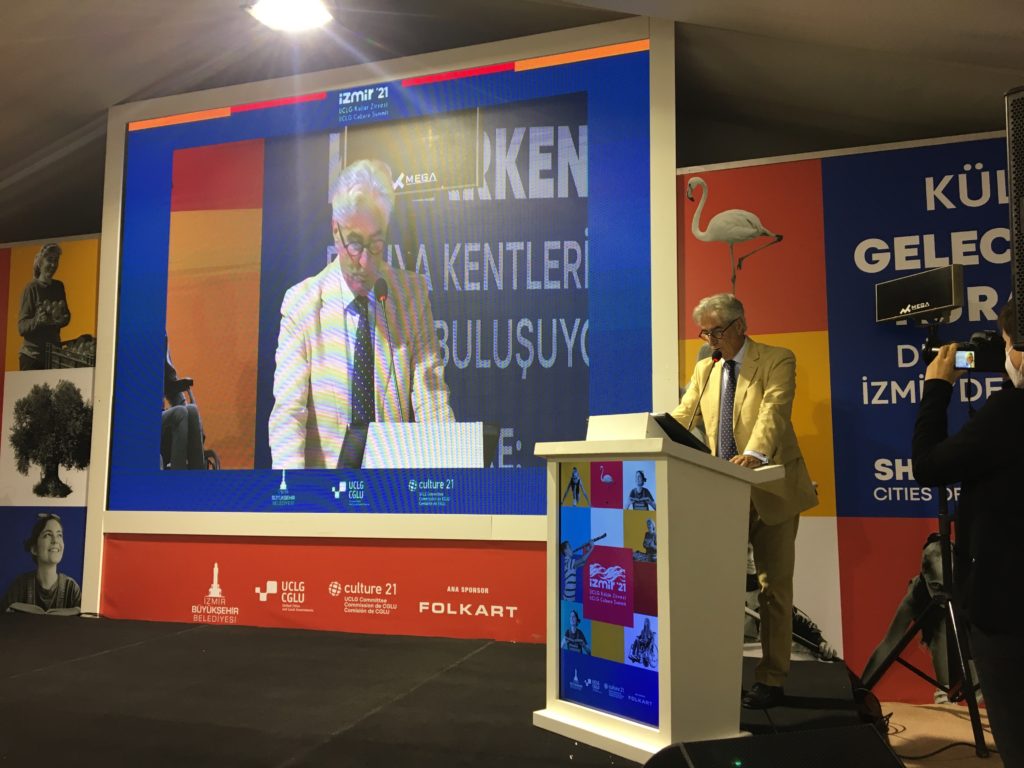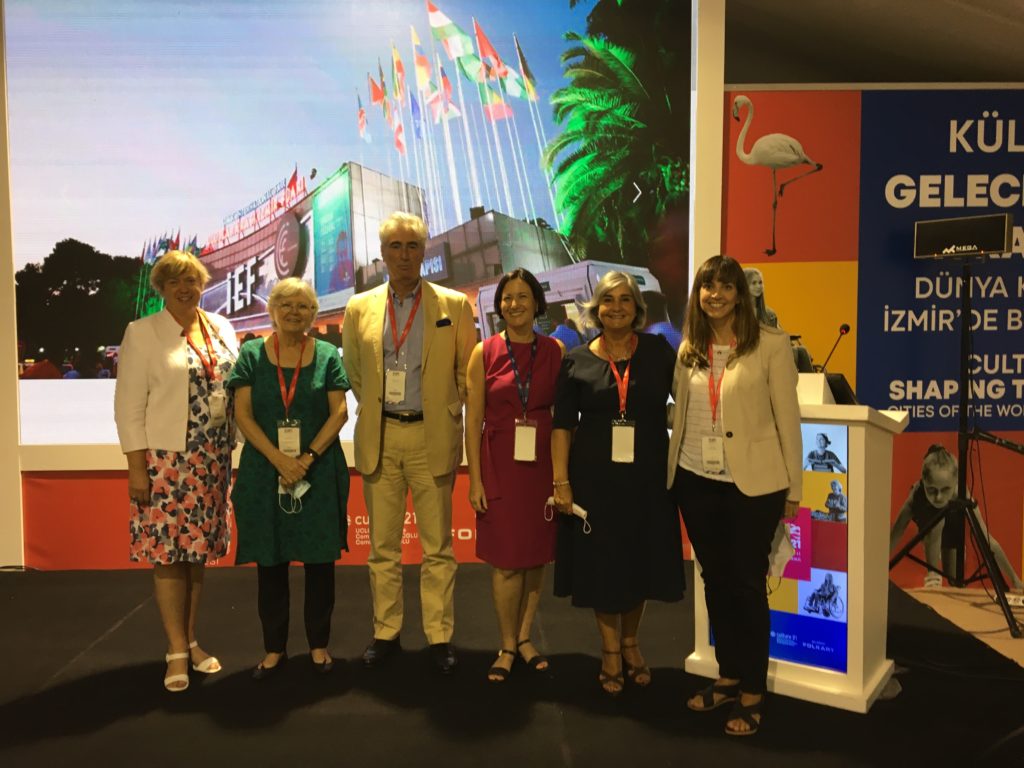Integrating libraries and culture into sustainable development planning: IFLA SG speaks at 4th Culture Summit
27 September 2021
Around the world, there are already very positive examples of local and regional governments integrating libraries and culture into their wider development policies. To spread this good practice, we need both to build awareness, and shape global frameworks.
Through his interventions at the UCLG Culture Summit in İzmir, Turkey, IFLA Secretary General Gerald Leitner underlined the urgency of action, and IFLA’s readiness to engage.
 Even before the COVID-19 Pandemic, the need to accelerate actions for development was clear, with progress already falling behind what is needed to achieve the Sustainable Development Goals.
Even before the COVID-19 Pandemic, the need to accelerate actions for development was clear, with progress already falling behind what is needed to achieve the Sustainable Development Goals.
The pandemic has only intensified this need, at all levels, including of course the local where so many of the key factors that affect economic, social and environmental sustainability are determined.
Culture is just such a means of accelerating development, as has been underlined by IFLA both in our own advocacy around the role of libraries, and through our work in the Culture2030Goal Campaign.
Libraries, as cultural institutions, can have a crucial role not just in informing and inspiring people to action through their collections, but also provide important places for communities to meet and build cohesion.
Looking beyond the cultural space, they are also the backbone of research systems, and drivers of equitable education.
Sharing good practices of incorporating culture and cultural actors into local development plans was at the heart of the 4th Culture Summit organised by United Cities and Local Governments, and held in Izmir, Turkey, on 9-11 September 2021.
IFLA Secretary General Gerald Leitner attended on behalf of IFLA, speaking on two panels – one focused on Voluntary Local Reviews of implementation of the Sustainable Development Goals, and one on the work of the Culture2030Goal campaign.

In talking about how culture could feature more strongly in future Voluntary Local Reviews, he highlighted the results of existing IFLA work, suggesting that more could be done to draw on culture as a driver of inclusion, civic engagement and wellbeing.
Meanwhile, in talking about IFLA’s support for the Culture2030Goal campaign, he stressed the need to build understanding of the opportunities lost when culture is not integrated into development policies, and looked forward to working with global cultural networks to achieve change in future development frameworks.
IFLA strongly looks forward to working with UCLG and partners into the future, in support of strong and equitable development for all.